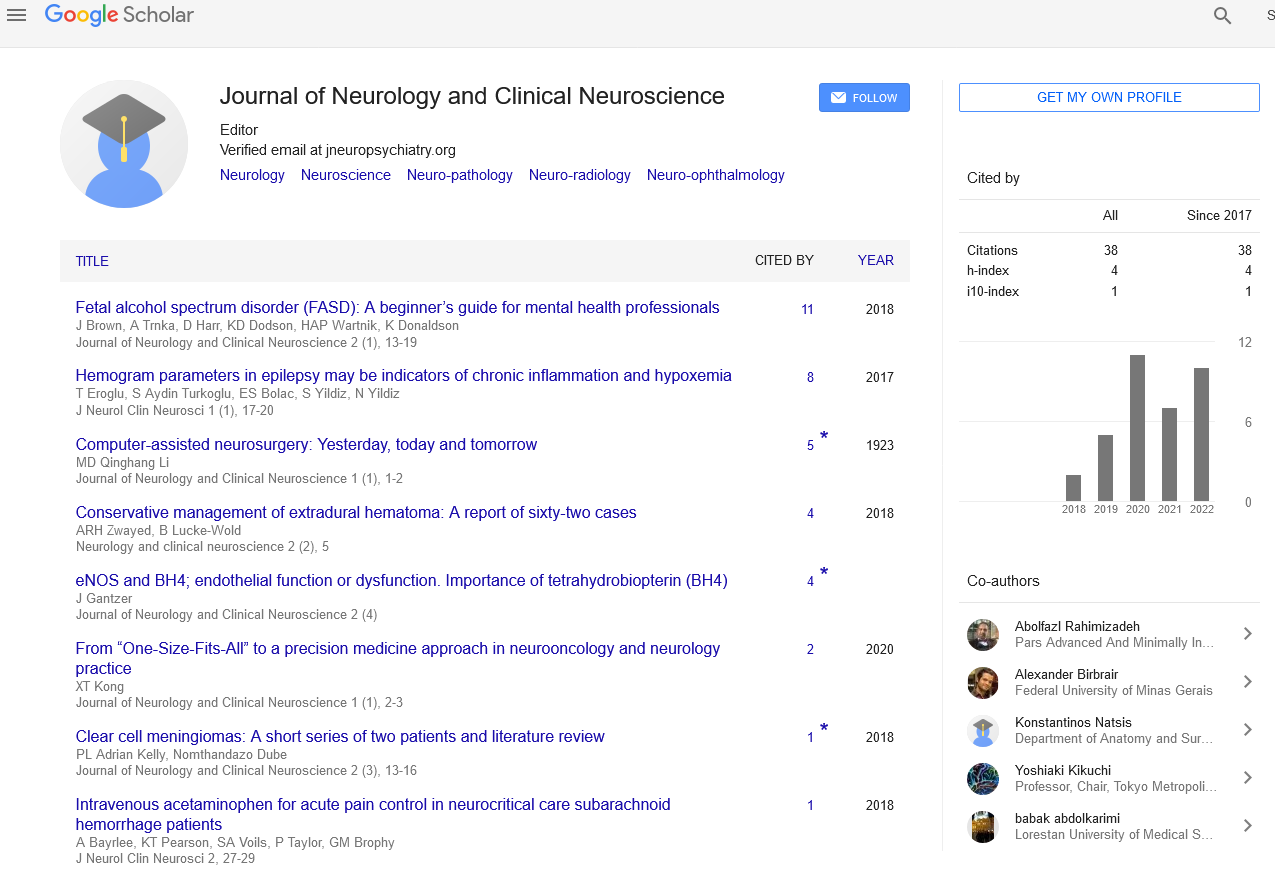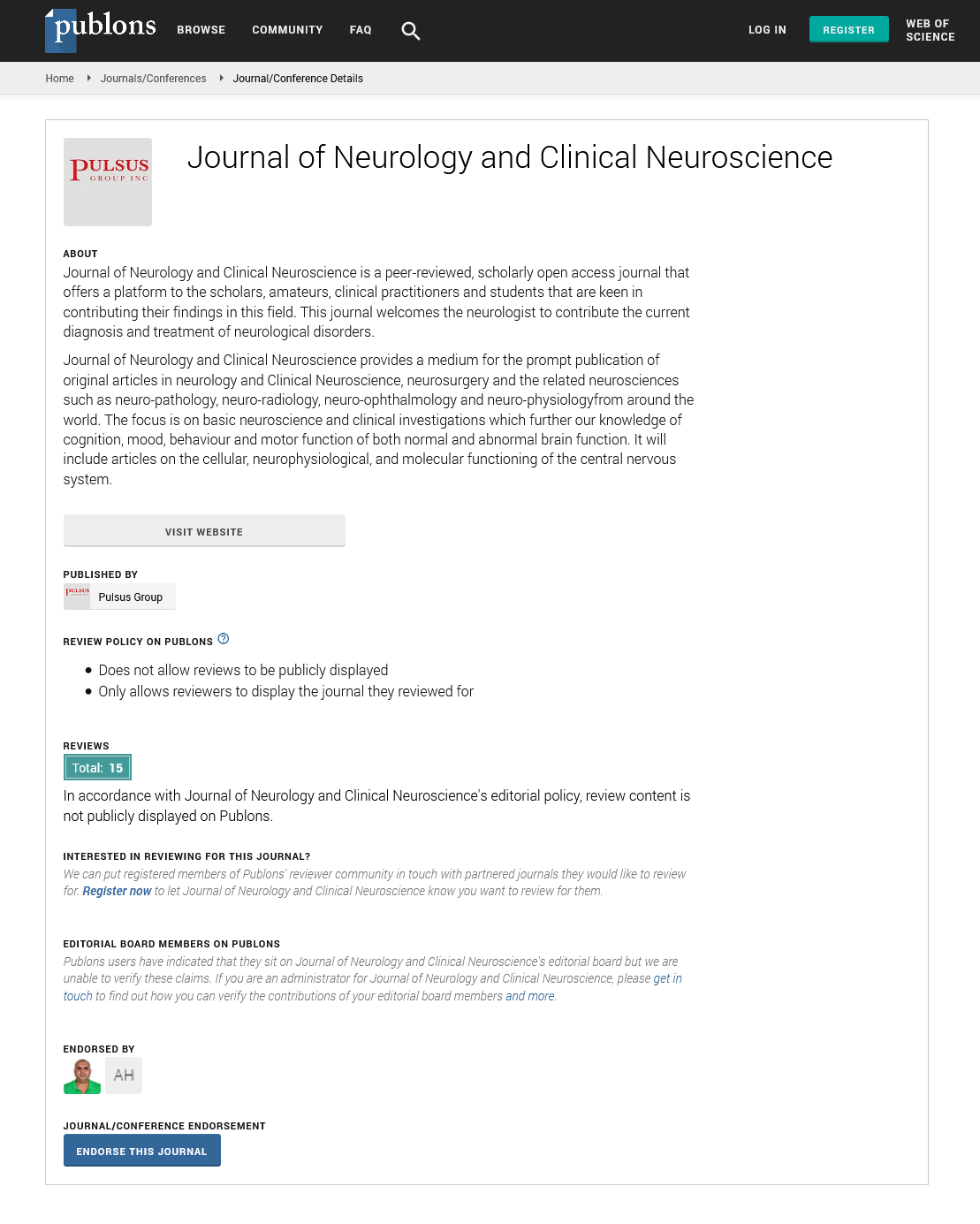Sign up for email alert when new content gets added: Sign up
Inzomelid is a CNS penetrant anti-inflammatory drug that blocks NLRP3 inflammasome activation targeted to prevent Synuclein Pathology and Dopaminergic Degeneration in Parkinson’s disease
7th International Conference on Parkinson’s & Movement Disorders
November 11-12, 2019 | London, UK
Matthew A Cooper
Inflazome Ltd, UK
Keynote: J Neurol Clin Neurosci
Abstract :
Fibrillar synuclein is implicated in cell-to-cell transmission and neuronal degeneration in Lewy body diseases, but mechanisms linking synuclein pathology and dopaminergic neuronal loss to chronic microglial neuroinflammation have not been defined. We show that activation of the microglial NLRP3 inflammasome is a common pathway triggered by both fibrillar synuclein and dopaminergic degeneration in the absence of synuclein aggregates. Cleaved caspase-1 and the inflammasome adapter protein ASC are elevated in the substantia nigra and plasma of Parkinson’s patients, and in multiple preclinical Parkinson’s models including 6-hydroxydopamine, MitoPark, and the preformed fibril model of synuclein pathology.NLRP3 activation by fibrillar synuclein in microglia results in a delayed, but robust activation of the NLRP3 inflammasome, with substantial extracellular IL-1β and ASC release in the absence of pyroptosis. Nanomolar doses of the potent small molecule tool compound NLRP3 inhibitor, MCC950, or the clinical stage investigative drug Inzomelid, abolished fibrillar synuclein-mediated NLRP3 activation and extracellular ASC release. Further, Inzomelid is active in the central nervous system following oral dosing, and can mitigate inflammasome activation, motor deficits and nigrostriatal dopaminergic degeneration. Crucially, chronic NLRP3 inhibition effectively blocks fibrillar synuclein mediated motor deficits, dopamine loss and pathological synuclein spread in vivo. These findings suggest that the microglial NLRP3 inflammasome may be a sustained source of neuroinflammation that drives progressive neuropathology in Parkinson’s and highlight Inzomelid as a potential disease-modifying therapeutic target for Parkinson’s.
Biography :
Matthew A Cooper is co-founder and CEO of Inflazome, co-founder and Director of Defensin Therapeutics, Affiliate Prof. in Biochemistry at Trinity College Dublin, Prof. Chemical Biology at the University of Queensland, Director of the Center for Open Antimicrobial Drug Discovery (CO-ADD) and the IMB Center for Superbug Solutions. He was the founder and Managing Director of Cambridge Medical Innovations (now part of Abbot) and CSO and co-founder of Akubio. He has worked in tools companies, diagnostics and therapeutics in the areas of drug screening and drug design, infectious diseases, innate immunity and the microbiome, and has consulted with AdProTech, Alere, Apax Capital Partners, AstraZeneca, Cambridge Antibody Technology, DeNovo Pharmaceuticals, Ellume, GE Healthcare, Heptares Therapeutics, Ionian Technologies, Inverness Medical Australia, NxP Semiconductor, OSI Pharmaceuticals, Pfizer, Protein Mechanics, Respirio, Science Foundation Ireland, Sense Proteomics/Procognia and Solexa (now Ilumina).
E-mail: m.cooper@inflazome.com





